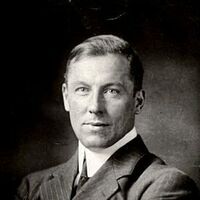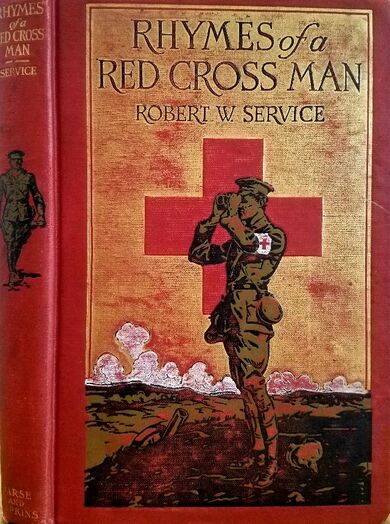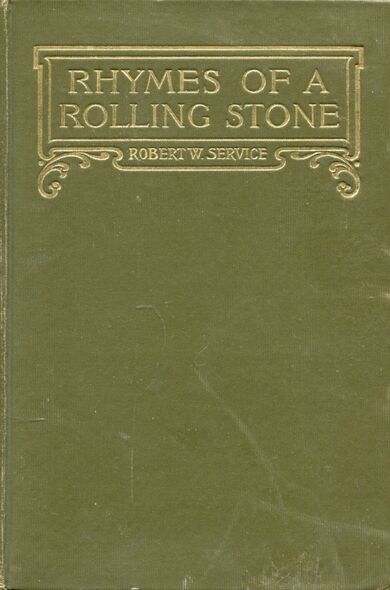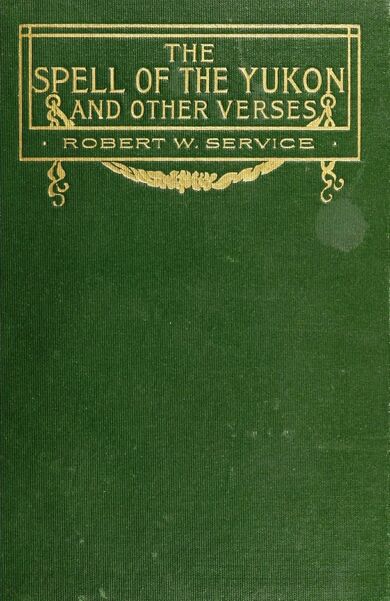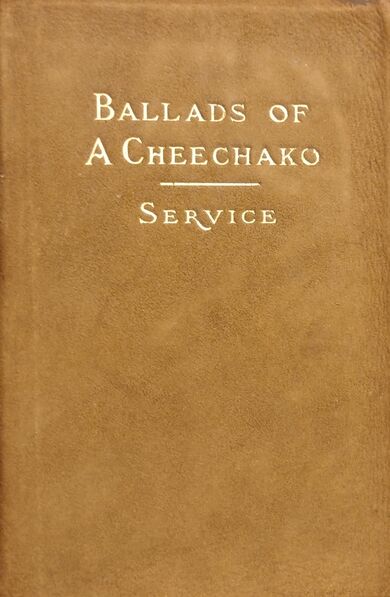Only a Boche
We brought him in from between the lines: we’d better have let him lie;
For what’s the use of risking one’s skin for a tyke that’s going to die?
What’s the use of tearing him loose under a gruelling fire,
When he’s shot in the head, and worse than dead, and all messed up on the wire?
However, I say, we brought him in. Diable! The mud was bad;
The trench was crooked and greasy and high, and oh, what a time we had!
And often we slipped, and often we tripped, but never he made a moan;
And how we were wet with blood and with sweat! but we carried him in like our own.
Now there he lies in the dug—out dim, awaiting the ambulance,
And the doctor shrugs his shoulders at him, and remarks, “He hasn’t a chance.”
And we squat and smoke at our game of bridge on the glistening, straw—packed floor,
And above our oaths we can hear his breath deep—drawn in a kind of snore.
For the dressing station is long and low, and the candles gutter dim,
And the mean light falls on the cold clay walls and our faces bristly and grim;
And we flap our cards on the lousy straw, and we laugh and jibe as we play,
And you’d never know that the cursed foe was less than a mile away.
As we con our cards in the rancid gloom, oppressed by that snoring breath,
You’d never dream that our broad roof—beam was swept by the broom of death.
Heigh—ho! My turn for the dummy hand; I rise and I stretch a bit;
The fetid air is making me yawn, and my cigarette’s unlit,
So I go to the nearest candle flame, and the man we brought is there,
And his face is white in the shabby light, and I stand at his feet and stare.
Stand for a while, and quietly stare: for strange though it seems to be,
The dying Boche on the stretcher there has a queer resemblance to me.
It gives one a kind of a turn, you know, to come on a thing like that.
It’s just as if I were lying there, with a turban of blood for a hat,
Lying there in a coat grey—green instead of a coat grey—blue,
With one of my eyes all shot away, and my brain half tumbling through;
Lying there with a chest that heaves like a bellows up and down,
And a cheek as white as snow on a grave, and lips that are coffee brown.
And confound him, too! He wears, like me, on his finger a wedding ring,
And around his neck, as around my own, by a greasy bit of string,
A locket hangs with a woman’s face, and I turn it about to see:
Just as I thought . . . on the other side the faces of children three;
Clustered together cherub—like, three little laughing girls,
With the usual tiny rosebud mouths and the usual silken curls.
“Zut!” I say. “He has beaten me; for me, I have only two,”
And I push the locket beneath his shirt, feeling a little blue.
Oh, it isn’t cheerful to see a man, the marvellous work of God,
Crushed in the mutilation mill, crushed to a smeary clod;
Oh, it isn’t cheerful to hear him moan; but it isn’t that I mind,
It isn’t the anguish that goes with him, it’s the anguish he leaves behind.
For his going opens a tragic door that gives on a world of pain,
And the death he dies, those who live and love, will die again and again.
So here I am at my cards once more, but it’s kind of spoiling my play,
Thinking of those three brats of his so many a mile away.
War is war, and he’s only a Boche, and we all of us take our chance;
But all the same I’ll be mighty glad when I’m hearing the ambulance.
One foe the less, but all the same I’m heartily glad I’m not
The man who gave him his broken head, the sniper who fired the shot.
No trumps you make it, I think you said? You’ll pardon me if I err;
For a moment I thought of other things . . .Mon Dieu! Quelle vache de gueerre.

